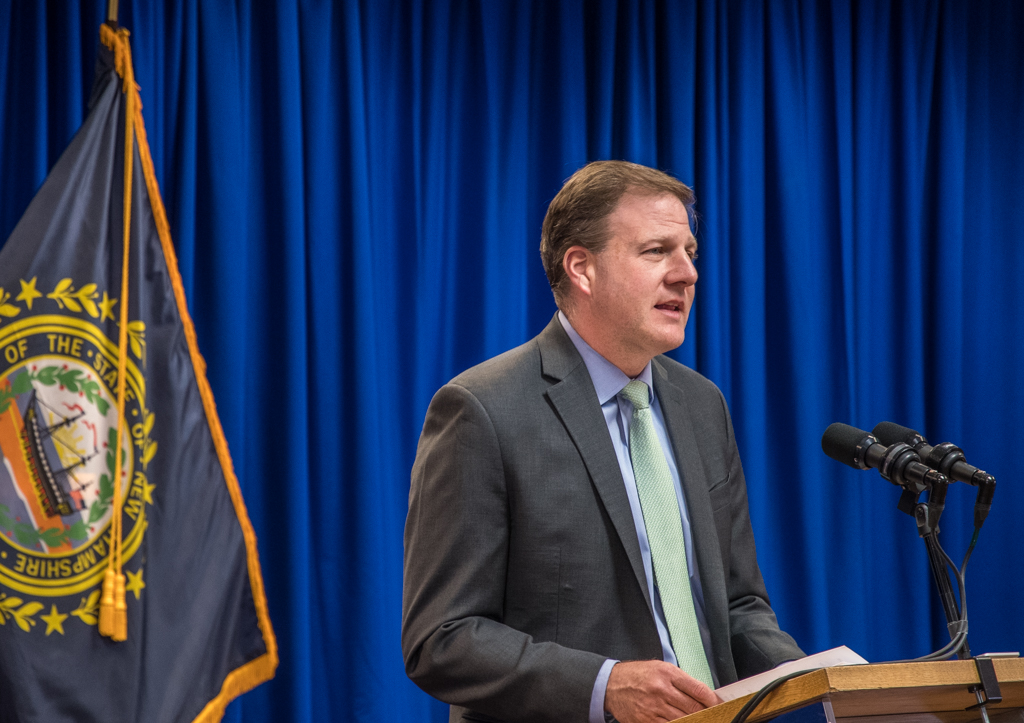By GARRY RAYNO, InDepthNH.org
CONCORD — Gov. Chris Sununu will provide executive councilors with information about warrants to withdraw hundreds of millions of dollars from the state treasury to combat the COVID-19 epidemic sweeping the state.
Two councilors wrote to Sununu earlier this week seeking information on how the money would be spent prior to acting on the requests at the council’s next meeting May 6.
“In advance of next week’s Governor and Executive Council meeting, my Office will be preparing some informational materials that will be shared with the Council ahead of the meeting for your review,” Sununu wrote in an email to the five executive councilors Thursday.
“I will also plan to take some time at the start of the meeting to provide some additional information on GOFERR (Governor’s Office for Emergency Relief and Recovery) and initial plans for expenditure of CARES Act funds, and to answer questions on the materials that we distribute.”
Councilors Debora Pignatelli, D-Nashua, and Andru Volinsky, D-Concord, sought additional information about the warrants noting the council’s advice and consent is required under Part 2 Article 56 of the state constitution to withdraw the money.
“This is a good first step,” Volinsky said. “We’ll have to wait and see the quality of the information and when we get it, but I am hopeful.”
He noted the five councilors all have experiences that could be of assistance to the governor, but to date he has not asked for any input from members.
“Maybe this is a break in the log jam,” Volinsky said. “We’ll see. I’m glad we got a response.”
When Volinsky and Pignatelli asked for additional information earlier this week, Sununu’s spokesman said the governor has been very transparent and will continue to be.
“Governor Sununu has been very transparent so far and intends to provide as much descriptive information as possible in a timely manner to members of the Executive Council,” said Benjamin Vihstadt, the governor’s communications director.
The governor has said a 2002 law passed after the September 11 terrorists attacks gives governors authority during a state of emergency to accept federal funds and spend unappropriated money to protect the public’s health and safety, which bypasses the normal approval process.
Without an emergency, the Joint Legislative Fiscal Committee would have to vote to accept new federal funds and to approve their use and then the Executive Council would have to vote to approve the contracts.
Democratic legislative leaders sued Sununu earlier this month seeking an injunction to block spending without fiscal committee approval, but a superior court judge ruled they lacked standing to sue because no actual harm has been done.
At issue is more than $1.25 billion in federal CARES Act and other money Congress approved to combat the coronavirus pandemic, to help those affected, and to limit the economic downturn resulting from business closings and stay-at-home orders.
Sununu has appointed two advisory committees to make recommendations to the Governor’s Office for Emergency Relief and Recovery: one of legislative leaders and the other of representatives of industries impacted by the worldwide pandemic like hospitality, hospitals and retail sales.
The money has to be used by the end of the year or the state has to return it to the federal government.
Garry Rayno may be reached at garry.rayno@yahoo.com





